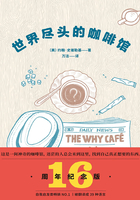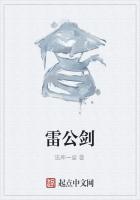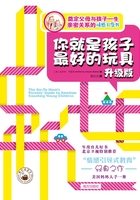At one o'clock on the 16th I went to the Rue d'Antin. The voice of the auctioneer could be heard from the outer door. The rooms were crowded with people. There were all the celebrities of the most elegant impropriety, furtively examined by certain great ladies who had again seized the opportunity of the sale in order to be able to see, close at hand, women whom they might never have another occasion of meeting, and whom they envied perhaps in secret for their easy pleasures. The Duchess of F. elbowed Mlle. A., one of the most melancholy examples of our modern courtesan; the Marquis de T. hesitated over a piece of furniture the price of which was being run high by Mme. D., the most elegant and famous adulteress of our time; the Duke of Y., who in Madrid is supposed to be ruining himself in Paris, and in Paris to be ruining himself in Madrid, and who, as a matter of fact, never even reaches the limit of his income, talked with Mme. M., one of our wittiest story-tellers, who from time to time writes what she says and signs what she writes, while at the same time he exchanged confidential glances with Mme. de N., a fair ornament of the Champs-Elysées, almost always dressed in pink or blue, and driving two big black horses which Tony had sold her for 10,000 francs, and for which she had paid, after her fashion; finally, Mlle. R., who makes by her mere talent twice what the women of the world make by their dot and three times as much as the others make by their amours, had come, in spite of the cold, to make some purchases, and was not the least looked at among the crowd.
We might cite the initials of many more of those who found themselves, not without some mutual surprise, side by side in one room. But we fear to weary the reader. We will only add that everyone was in the highest spirits, and that many of those present had known the dead woman, and seemed quite oblivious of the fact. There was a sound of loud laughter; the auctioneers shouted at the top of their voices; the dealers who had filled the benches in front of the auction table tried in vain to obtain silence, in order to transact their business in peace. Never was there a noisier or a more varied gathering.
I slipped quietly into the midst of this tumult, sad to think of when one remembered that the poor creature whose goods were being sold to pay her debts had died in the next room. Having come rather to examine than to buy, I watched the faces of the auctioneers, noticing how they beamed with delight whenever anything reached a price beyond their expectations. Honest creatures, who had speculated upon this woman's prostitution, who had gained their hundred per cent out of her, who had plagued with their writs the last moments of her life, and who came now after her death to gather in at once the fruits of their dishonourable calculations and the interest on their shameful credit, How wise were the ancients in having only one God for traders and robbers!
Dresses, cashmeres, jewels, were sold with incredible rapidity. There was nothing that I cared for, and I still waited. All at once I heard: "A volume, beautifully bound, gilt-edged, entitled Manon Lescaut. There is something written on the first page. Ten francs."
"Twelve," said a voice after a longish silence.
"Fifteen," I said.
Why? I did not know. Doubtless for the something written.
"Fifteen," repeated the auctioneer.
"Thirty," said the first bidder in a tone which seemed to defy further competition.
It had now become a struggle. "Thirty-five," I cried in the same tone.
"Forty."
"Fifty."
"Sixty."
"A hundred."
If I had wished to make a sensation I should certainly have succeeded, for a profound silence had ensued, and people gazed at me as if to see what sort of a person it was, who seemed to be so determined to possess the volume.
The accent which I had given to my last word seemed to convince my adversary; he preferred to abandon a conflict which could only have resulted in making me pay ten times its price for the volume, and, bowing, he said very gracefully, though indeed a little late:
"I give way, sir."
Nothing more being offered, the book was assigned to me.
As I was afraid of some new fit of obstinacy, which my amour propre might have sustained somewhat better than my purse, I wrote down my name, had the book put on one side, and went out. I must have given considerable food for reflection to the witnesses of this scene, who would no doubt ask themselves what my purpose could have been in paying a hundred francs for a book which I could have had anywhere for ten, or, at the outside, fifteen.
An hour after, I sent for my purchase. On the first page was written in ink, in an elegant hand, an inscription on the part of the giver. It consisted of these words:
Manon to Marguerite.
Humility.
It was signed Armand Duval.
What was the meaning of the word Humility? Was Manon to recognise in Marguerite, in the opinion of M. Armand Duval, her superior in vice or in affection? The second interpretation seemed the more probable, for the first would have been an impertinent piece of plain speaking which Marguerite, whatever her opinion of herself, would never have accepted.
I went out again, and thought no more of the book until at night, when I was going to bed.
Manon Lescaut is a touching story. I know every detail of it, and yet whenever I come across the volume the same sympathy always draws me to it; I open it, and for the hundredth time I live over again with the heroine of the Abbé Prevost. Now this heroine is so true to life that I feel as if I had known her; and thus the sort of comparison between her and Marguerite gave me an unusual inclination to read it, and my indulgence passed into pity, almost into a kind of love for the poor girl to whom I owed the volume. Manon died in the desert, it is true, but in the arms of the man who loved her with the whole energy of his soul; who, when she was dead, dug a grave for her, and watered it with his tears, and buried his heart in it; while Marguerite, a sinner like Manon, and perhaps converted like her, had died in a sumptuous bed (it seemed, after what I had seen, the bed of her past), but in that desert of the heart, a more barren, a vaster, a more pitiless desert than that in which Manon had found her last resting-place.
Marguerite, in fact, as I had found from some friends who knew of the last circumstances of her life, had not a single real friend by her bedside during the two months of her long and painful agony.
Then from Manon and Marguerite my mind wandered to those whom I knew, and whom I saw singing along the way which led to just such another death. Poor souls! if it is not right to love them, is it not well to pity them? You pity the blind man who has never seen the daylight, the deaf who has never heard the harmonies of nature, the dumb who has never found a voice for his soul, and, under a false cloak of shame, you will not pity this blindness of heart, this deafness of soul, this dumbness of conscience, which sets the poor afflicted creature beside herself and makes her, in spite of herself, incapable of seeing what is good, of bearing the Lord, and of speaking the pure language of love and faith.
Hugo has written Marion Delorme, Musset has written Bernerette, Alexandre Dumas has written Fernande, the thinkers and poets of all time have brought to the courtesan the offering of their pity, and at times a great man has rehabilitated them with his love and even with his name. If I insist on this point, it is because many among those who have begun to read me will be ready to throw down a book in which they will fear to find an apology for vice and prostitution; and the author's age will do something, no doubt, to increase this fear. Let me undeceive those who think thus, and let them go on reading, if nothing but such a fear hinders them.
I am quite simply convinced of a certain principle, which is: For the woman whose education has not taught her what is right, God almost always opens two ways which lead thither the ways of sorrow and of love. They are hard; those who walk in them walk with bleeding feet and torn hands, but they also leave the trappings of vice upon the thorns of the wayside, and reach the journey's end in a nakedness which is not shameful in the sight of the Lord.
Those who meet these bold travellers ought to succour them, and to tell all that they have met them, for in so doing they point out the way. It is not a question of setting at the outset of life two sign-posts, one bearing the inscription "The Right Way," the other the inscription "The Wrong Way," and of saying to those who come there, "Choose." One must needs, like Christ, point out the ways which lead from the second road to the first, to those who have been easily led astray; and it is needful that the beginning of these ways should not be too painful nor appear too impenetrable.
Here is Christianity with its marvellous parable of the Prodigal Son to teach us indulgence and pardon. Jesus was full of love for souls wounded by the passions of men; he loved to bind up their wounds and to find in those very wounds the balm which should heal them. Thus he said to the Magdalen: "Much shall be forgiven thee because thou hast loved much," a sublimity of pardon which can only have called forth a sublime faith.
Why do we make ourselves more strict than Christ? Why, holding obstinately to the opinions of the world, which hardens itself in order that it may be thought strong, do we reject, as it rejects, souls bleeding at wounds by which, like a sick man's bad blood, the evil of their past may be healed, if only a friendly hand is stretched out to lave them and set them in the convalescence of the heart?
It is to my own generation that I speak, to those for whom the theories of M. de Voltaire happily exist no longer, to those who, like myself, realize that humanity, for these last fifteen years, has been in one of its most audacious moments of expansion. The science of good and evil is acquired forever; faith is refashioned, respect for sacred things has returned to us, and if the world has not all at once become good, it has at least become better. The efforts of every intelligent man tend in the same direction, and every strong will is harnessed to the same principle: Be good, be young, be true! Evil is nothing but vanity, let us have the pride of good, and above all let us never despair. Do not let us despise the woman who is neither mother, sister, maid, nor wife. Do not let us limit esteem to the family nor indulgence to egoism. Since "there is more joy in heaven over one sinner that repenteth than over ninety and nine just persons that need no repentance," let us give joy to heaven. Heaven will render it back to us with usury. Let us leave on our way the alms of pardon for those whom earthly desires have driven astray, whom a divine hope shall perhaps save, and, as old women say when they offer you some homely remedy of their own, if it does no good it will do no harm.
Doubtless it must seem a bold thing to attempt to deduce these grand results out of the meagre subject that I deal with; but I am one of those who believe that all is in little. The child is small, and he includes the man; the brain is narrow, and it harbours thought; the eye is but a point, and it covers leagues.














